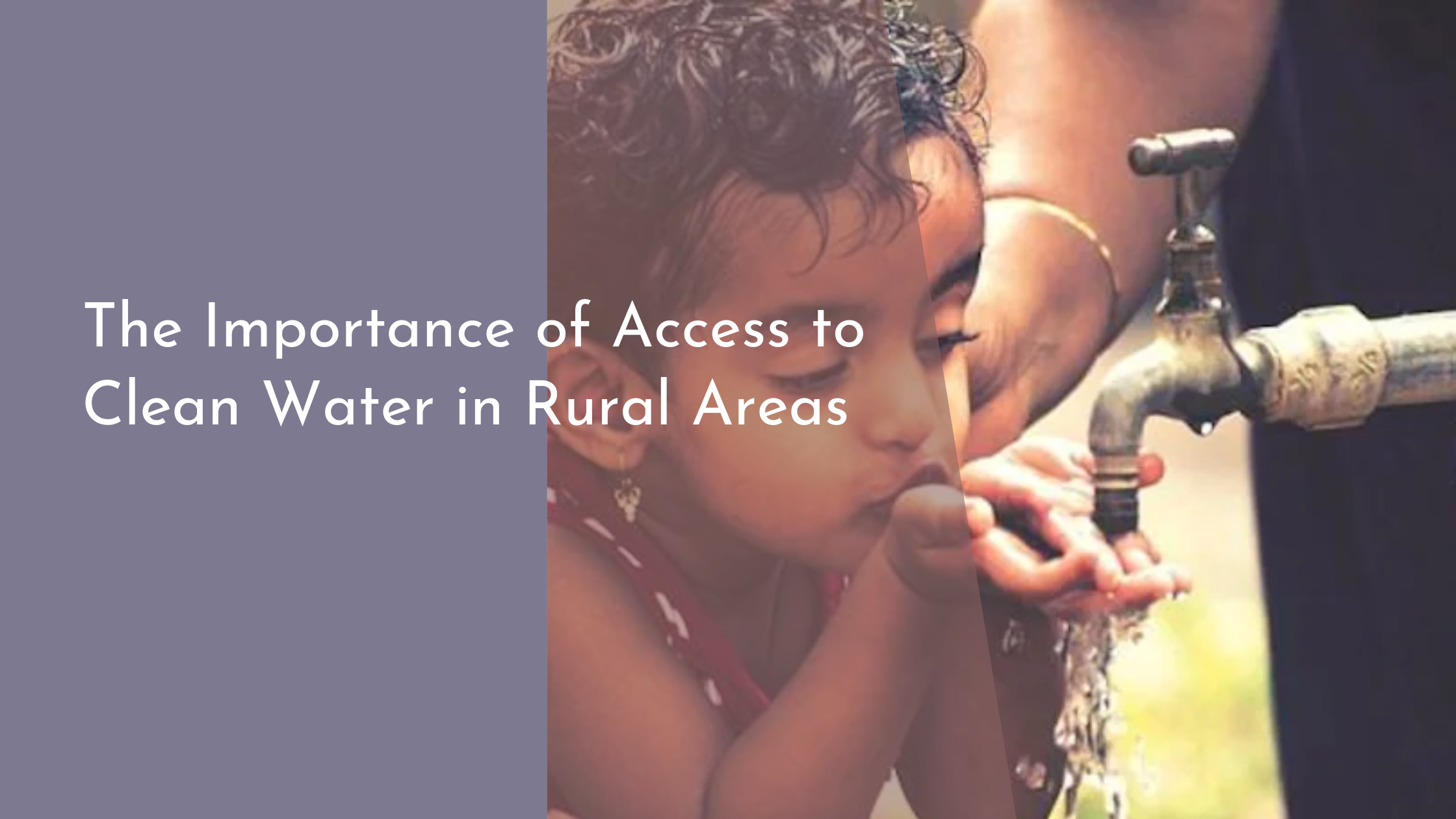The Importance of Access to Clean Water in Rural Areas
Access to clean water is a fundamental human necessity and a critical component for the prosperity of any community. However, in many rural areas around the world, access to safe and clean drinking water remains a significant challenge. This article explores the importance of clean water access in rural areas, examining its health benefits, economic impacts, and the innovative solutions being developed to tackle this global issue. By understanding these elements, we can work towards a future where every rural community enjoys the basic right to clean water.
Understanding the Clean Water Crisis
The global clean water crisis is a pressing issue that affects millions of people, particularly in rural areas. These regions often lack the infrastructure necessary to provide reliable and safe water sources, leading to widespread water scarcity and contamination issues. Factors such as climate change, population growth, and inadequate investment in water systems exacerbate the crisis, leaving rural communities struggling to access the clean water they desperately need. Understanding the scope of the problem is the first step towards finding effective solutions.
In rural regions, the lack of clean water is more than just an inconvenience; it is a significant barrier to development and health. Contaminated water sources lead to a myriad of health issues, including waterborne diseases such as cholera and dysentery, which disproportionately affect vulnerable populations like children and the elderly. Without intervention, these communities face a cycle of poverty and illness that is difficult to break. Recognizing the clean water crisis as a critical issue is essential for driving the change needed to improve the quality of life in rural areas.
Health Benefits of Clean Water Access
Access to clean water is directly linked to improved health outcomes in rural communities. Drinking and using clean water helps prevent the spread of waterborne diseases, which are responsible for numerous deaths and illnesses each year. When communities have access to safe water, they experience a significant reduction in diseases such as diarrhea, cholera, and typhoid. This not only improves individual health but also reduces the burden on healthcare systems, allowing for resources to be allocated to other critical areas.
Beyond the reduction of disease, clean water access promotes overall well-being and hygiene. It allows for proper sanitation practices, such as handwashing and bathing, which are crucial for preventing illness. Clean water also contributes to better nutritional outcomes, as it is essential for cooking and food preparation. When communities have reliable access to clean water, they can live healthier lives, leading to increased productivity and a better quality of life for all.
Economic Impact on Rural Communities
The availability of clean water in rural areas has profound economic implications. Access to safe water sources can significantly boost agricultural productivity, which is often the backbone of rural economies. With reliable water supply, farmers can irrigate crops more efficiently, increase yield, and sustain livestock, leading to greater food security and income opportunities. This, in turn, stimulates local economies and supports community development.
Moreover, when rural communities have access to clean water, it reduces the time and effort spent fetching water from distant and potentially unsafe sources. This time can instead be used for education, work, or other productive activities, particularly benefiting women and children who often bear the responsibility of water collection. This shift not only improves household incomes but also empowers communities to invest in their future, fostering an environment where economic growth and development can thrive.
Innovative Solutions and Technologies
Innovative solutions and technologies are playing a pivotal role in addressing the clean water crisis in rural areas. One promising approach is the implementation of community-managed water systems, which empower local populations to maintain and manage their own water resources. Technologies like solar-powered water purification systems provide sustainable and cost-effective solutions, ensuring that even remote areas can have access to safe drinking water.
Additionally, advancements in water filtration and purification technologies have made it possible to turn previously unusable water sources into safe and clean drinking water. Portable water filters and low-cost purification tablets are being distributed to rural communities, providing immediate relief from contaminated water sources. These innovations, coupled with community education and engagement, are creating a pathway toward sustainable clean water access for rural populations.
The importance of access to clean water in rural areas cannot be overstated. It is a critical factor for improving health, boosting economic development, and enhancing the overall quality of life. By understanding the clean water crisis, recognizing its health and economic impacts, and embracing innovative solutions, we can take meaningful steps toward ensuring that every rural community has access to this life-sustaining resource. With continued investment and collaboration, a brighter future with clean water is within reach for rural populations around the world.


